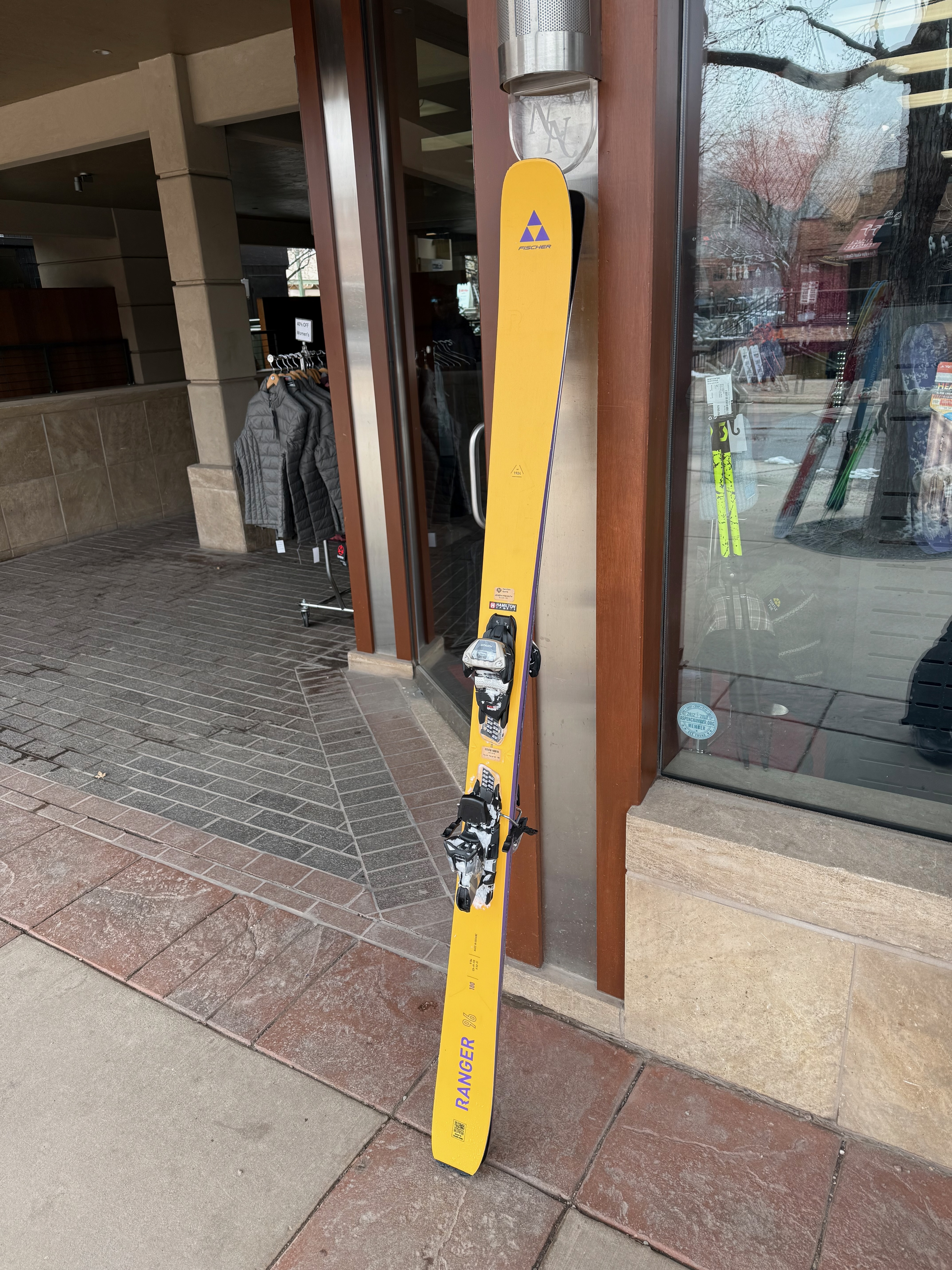
Finding Your Perfect Match: The Crucial Role of Ski Length and Width
Finding Your Perfect Match: The Crucial Role of Ski Length and Width
After an exhilarating week of testing various skis on perfectly groomed runs, I’ve come to a revelation that might seem obvious but is often overlooked: finding skis with the right length and width for your body and turning style is absolutely essential for maximizing your performance and enjoyment on the mountain.
 The Fischer Ranger 96 at 180cm - my top pick for the perfect blend of stability and agility
The Fischer Ranger 96 at 180cm - my top pick for the perfect blend of stability and agility
The Quest for the Perfect Ski
I recently had the opportunity to demo eight different pairs of skis, ranging from narrow carvers to wider all-mountain options. While each ski had its unique characteristics—different flex patterns, construction methods, and brand personalities—I found myself consistently gravitating toward two models: the Nordica Enforcer 94 (179cm) and the Fischer Ranger 96 (180cm).
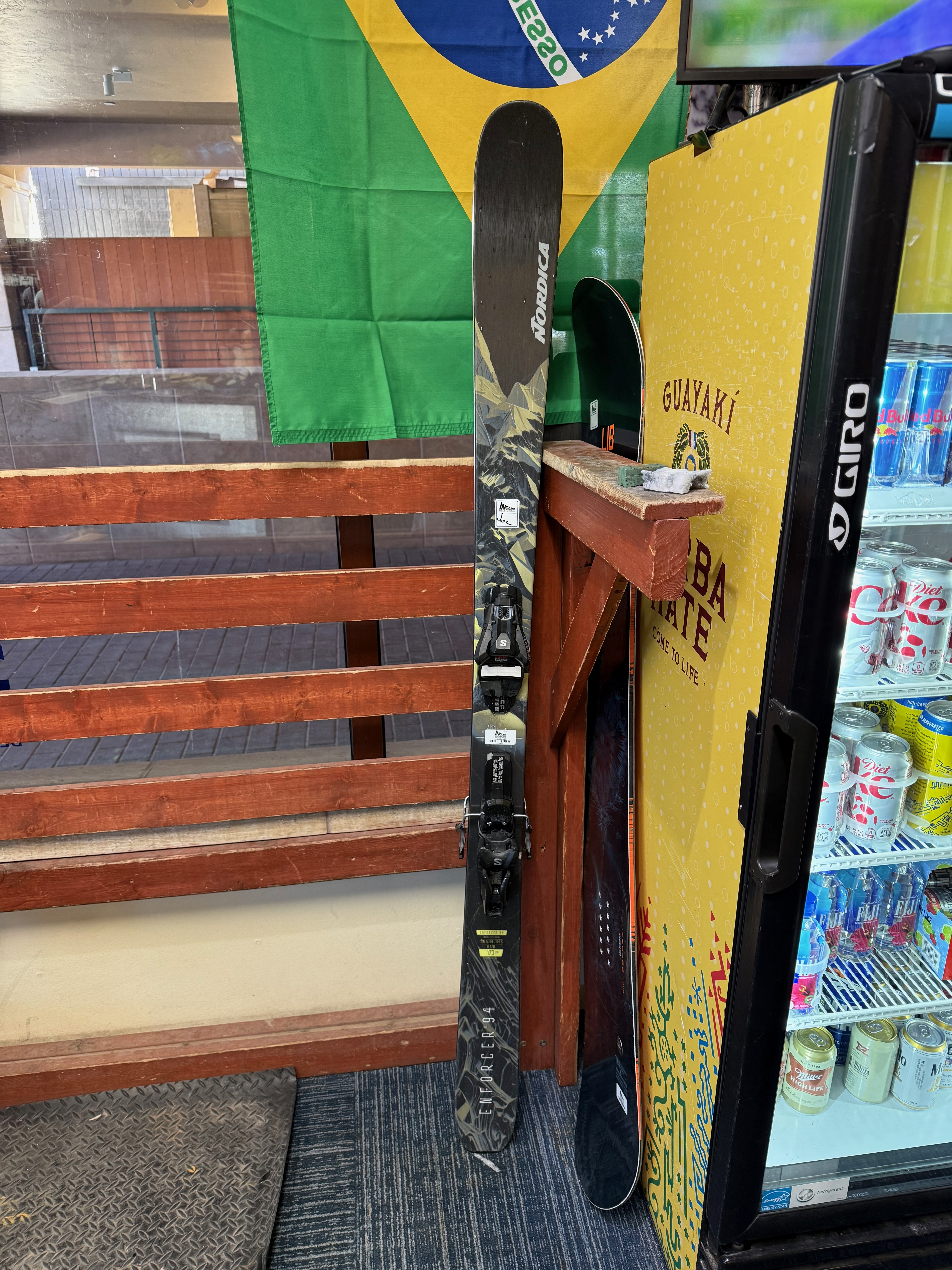 The Nordica Enforcer 94 in a 173cm length - slightly shorter but still offers impressive performance
The Nordica Enforcer 94 in a 173cm length - slightly shorter but still offers impressive performance
What struck me wasn’t just that I enjoyed both skis, but that despite being from different manufacturers with different design philosophies, they shared remarkably similar dimensions. This wasn’t a coincidence—it was a revelation.
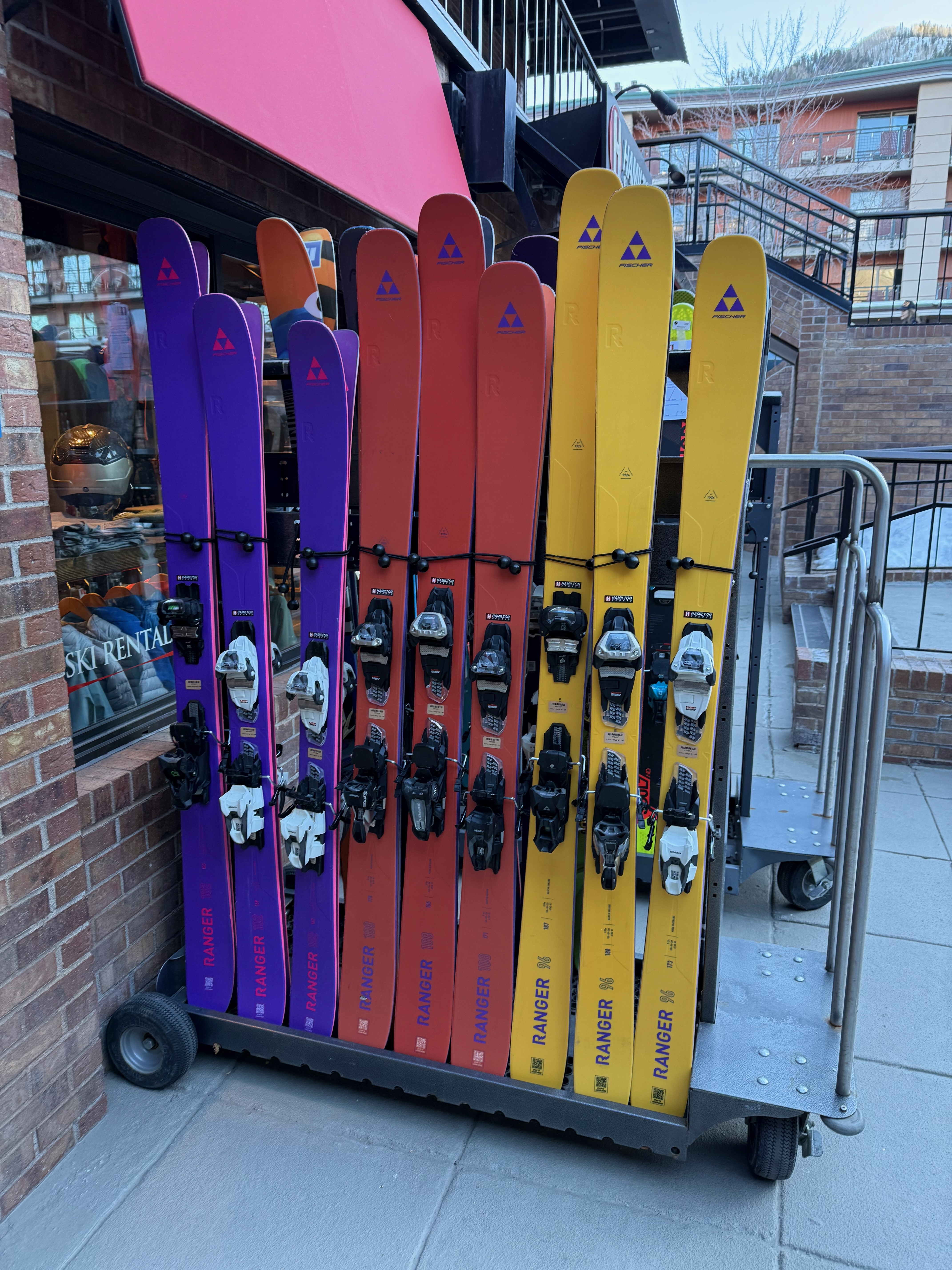 The impressive Fischer Ranger lineup on display at Hamilton Sports in Aspen
The impressive Fischer Ranger lineup on display at Hamilton Sports in Aspen
The Numbers Game
The similarities between my two favorites were striking:
- Nordica Enforcer 94: 179cm length, 94mm waist
- Fischer Ranger 96: 180cm length, 96mm waist
Just one centimeter difference in length and two millimeters in width, yet these small measurements made all the difference in how these skis matched my 6’ frame and moderate weight.
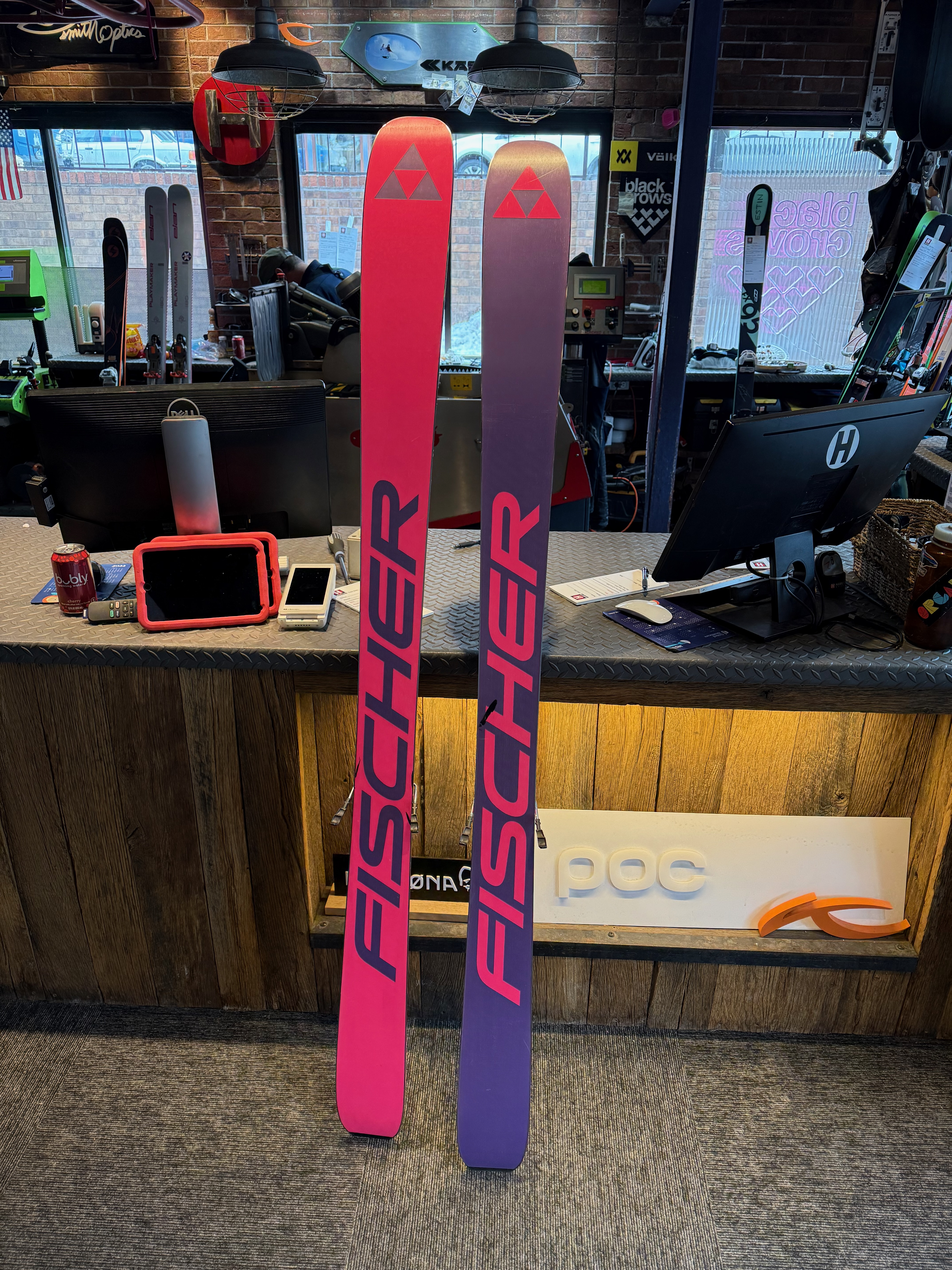 Mark ended up grabbing this demo pair of the 176cm 102 Fischer Rangers. They had a core shot that was repaired, but still in great shape and an amazing deal with adjustable bindings.
Mark ended up grabbing this demo pair of the 176cm 102 Fischer Rangers. They had a core shot that was repaired, but still in great shape and an amazing deal with adjustable bindings.
Why Length and Width Matter So Much
When ripping groomers, your skis are essentially extensions of your body. The length affects how stable you feel at speed and how much leverage you have in turns, while the width determines how quickly you can transition from edge to edge and how much float you have when conditions deteriorate.
At 179-180cm, both skis provided me with:
- Enough stability to inspire confidence at high speeds
- Sufficient length to support my weight through powerful carves
- The perfect balance between maneuverability and stability
The ~95mm waist width offered:
- Quick enough edge transitions for tight turns when needed
- Enough platform to remain stable on firmer snow
- Just enough width to handle occasional soft patches or end-of-day chop
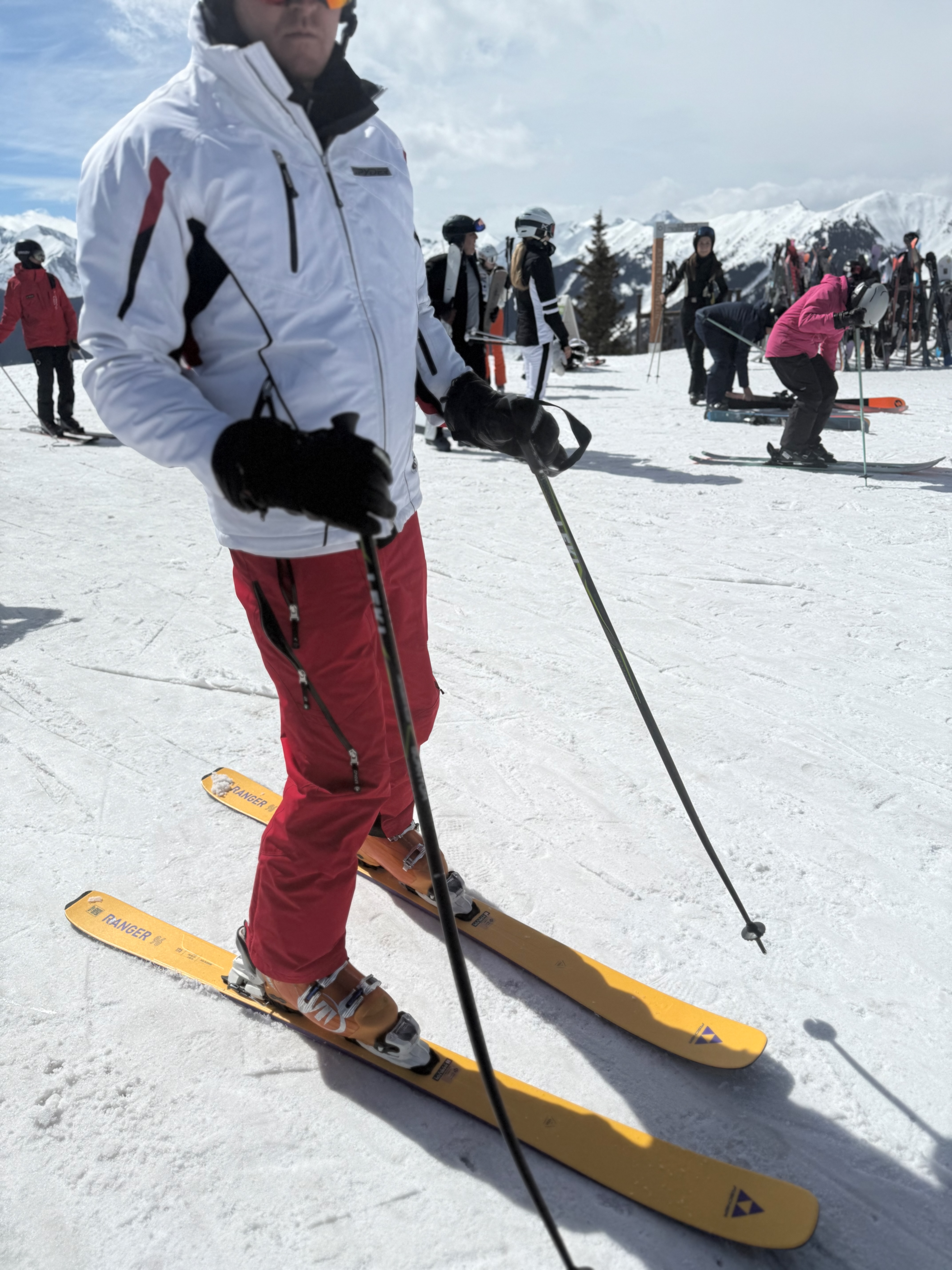 Hutch preferred the shorter 173cm Ranger 96, demonstrating how personal preference plays a role
Hutch preferred the shorter 173cm Ranger 96, demonstrating how personal preference plays a role
Beyond Brand Loyalty
What’s particularly interesting is that these two skis come from brands with different reputations—Nordica being known for powerful, damp skis and Fischer often celebrated for lighter, more nimble offerings. Yet when the dimensions aligned with my physical characteristics and skiing style, both skis felt remarkably “right.”
Finding Your Magic Numbers
Every skier has their own ideal length and width range. Factors to consider include:
- Height and weight (taller/heavier typically means longer/wider)
- Turning preference (shorter radius turns favor shorter skis)
- Speed preference (faster skiing generally calls for longer skis)
- Terrain choices (even on groomers, some are steeper or more technical)
Here are some other excellent skis I tested that might match your perfect dimensions:
 The Blizzard Anomaly 88 - a narrower option excellent for precision carving on hard snow
The Blizzard Anomaly 88 - a narrower option excellent for precision carving on hard snow
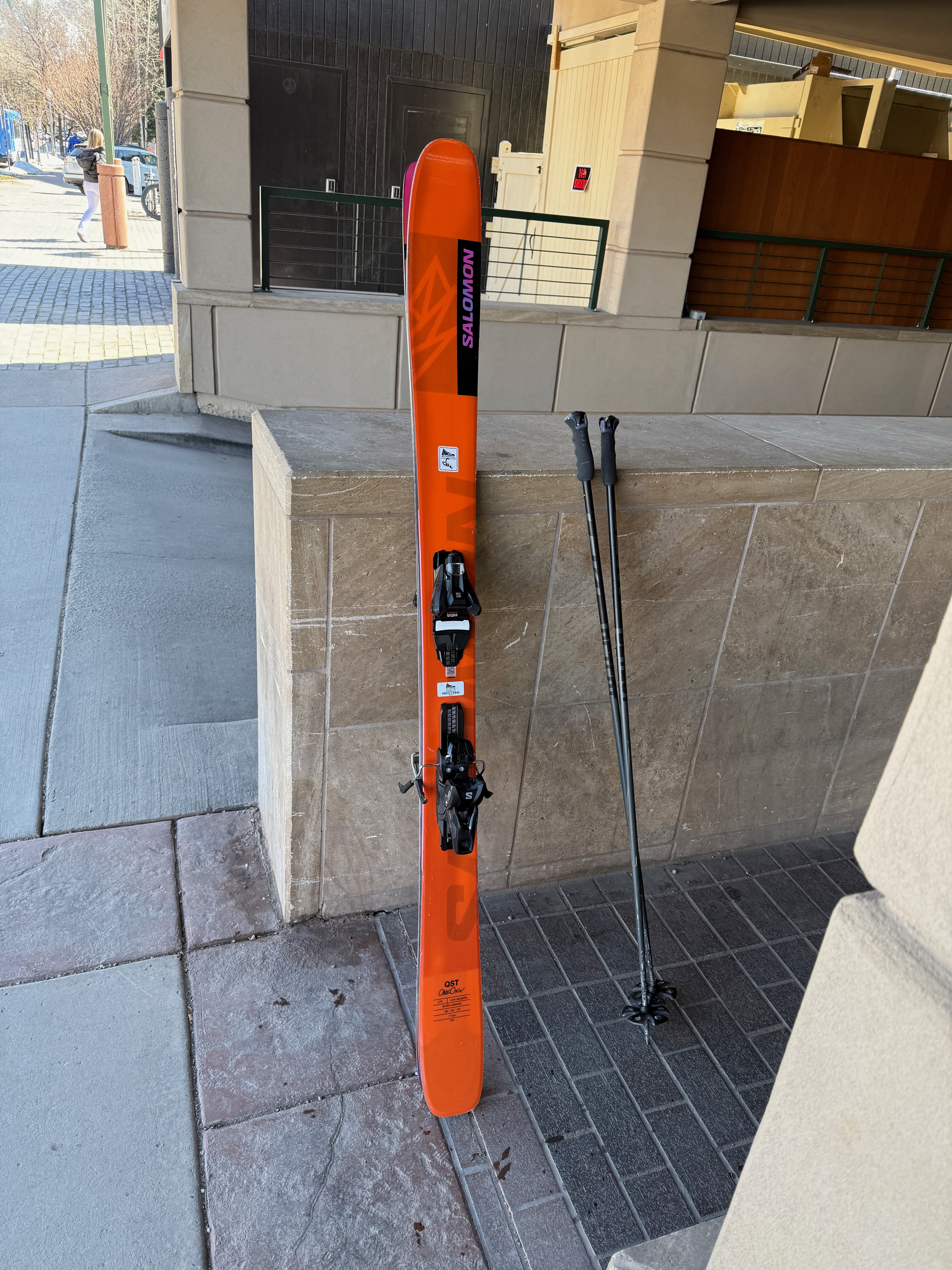 The versatile Salomon QST - offering a balanced blend of performance across various conditions
The versatile Salomon QST - offering a balanced blend of performance across various conditions
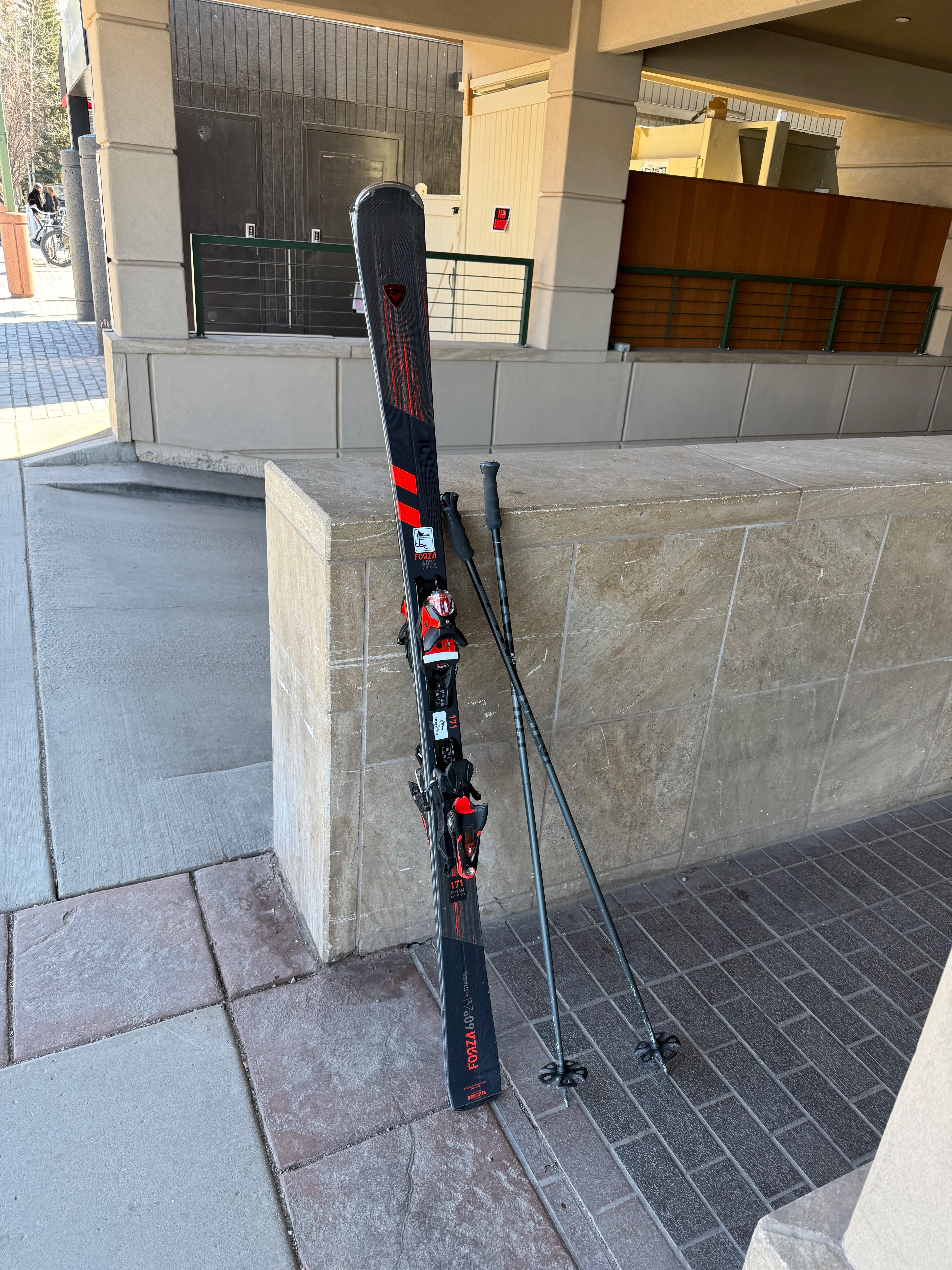 The Rossignol Forza - a frontside carving machine built for speed and precision
The Rossignol Forza - a frontside carving machine built for speed and precision
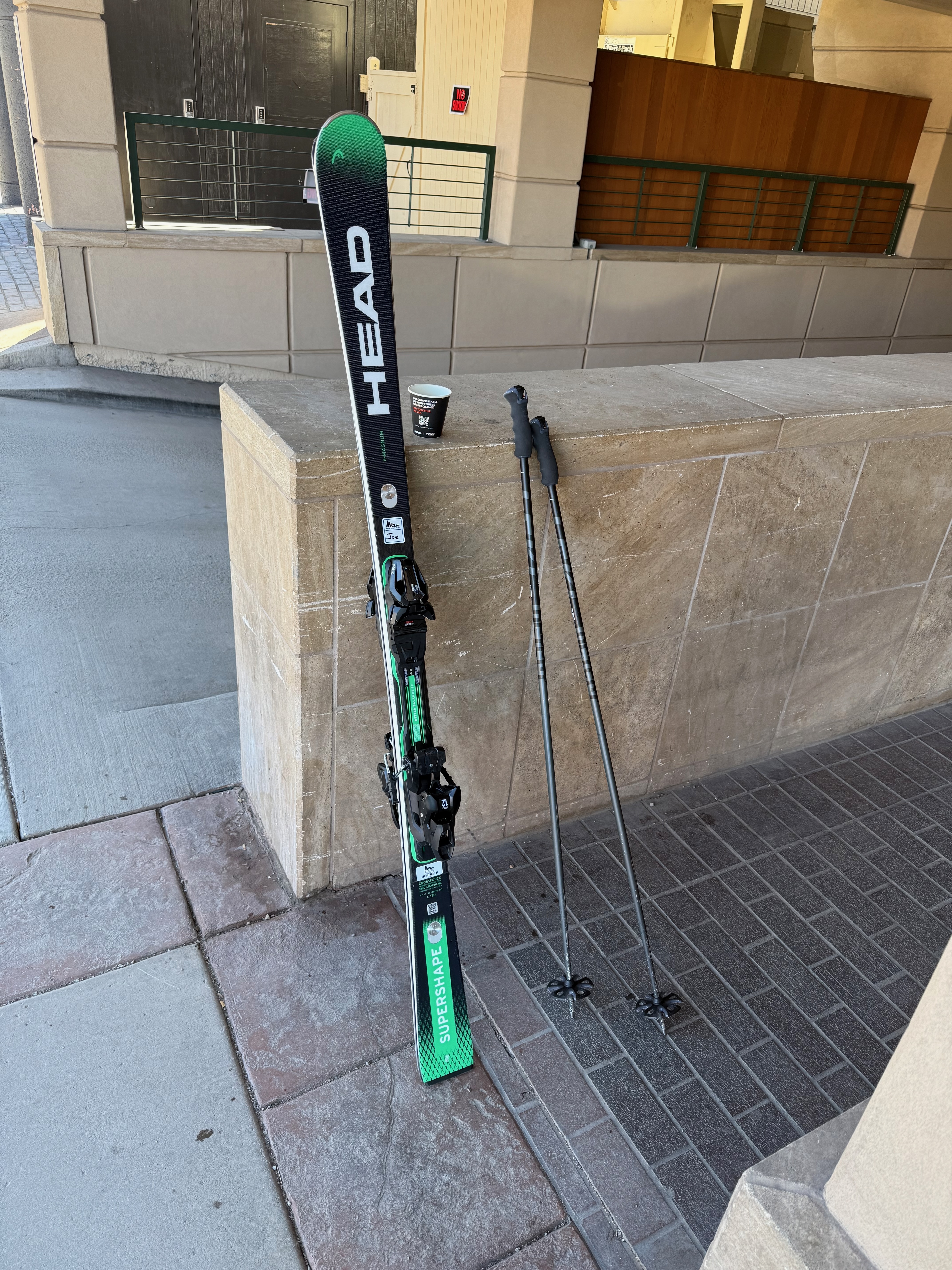 The legendary Head SuperShape - known for its race-inspired performance and edge grip
The legendary Head SuperShape - known for its race-inspired performance and edge grip
Conclusion
While it’s easy to get caught up in marketing jargon, construction technologies, and brand loyalties, my demo experience reinforced a fundamental truth: finding skis with the right dimensions for your body and skiing style is the foundation of a great skiing experience.
So before you buy your next pair, focus first on finding your magic numbers. Demo multiple pairs in similar dimensions to find the length and width that work for you. Then you can fine-tune based on other characteristics like flex pattern, sidecut, and construction.
For me, that magic formula seems to be about 180cm length with a 95mm waist. What’s yours?
Contributing Editor’s Take: The Case for a Flexible Approach
Comment from Patrick K., Ripping Groomers Contributing Editor:
I tend to think about this completely differently. For me, it’s the conditions, runs, snow quality, crowds, and who I’m skiing with that determine which skis I grab, which in turn influences how I ski that day. It’s actually the exact opposite of your approach!
Some days I want those nimble carvers for ripping perfect corduroy at dawn, other days I need something wider for when things get choppy in the afternoon. The group’s pace and chosen terrain often dictate whether I want something quick-turning or more stable at speed.
Maybe there’s no single “perfect match” – just perfect matches for perfect moments. That’s why I ended up with multiple pairs in my quiver!